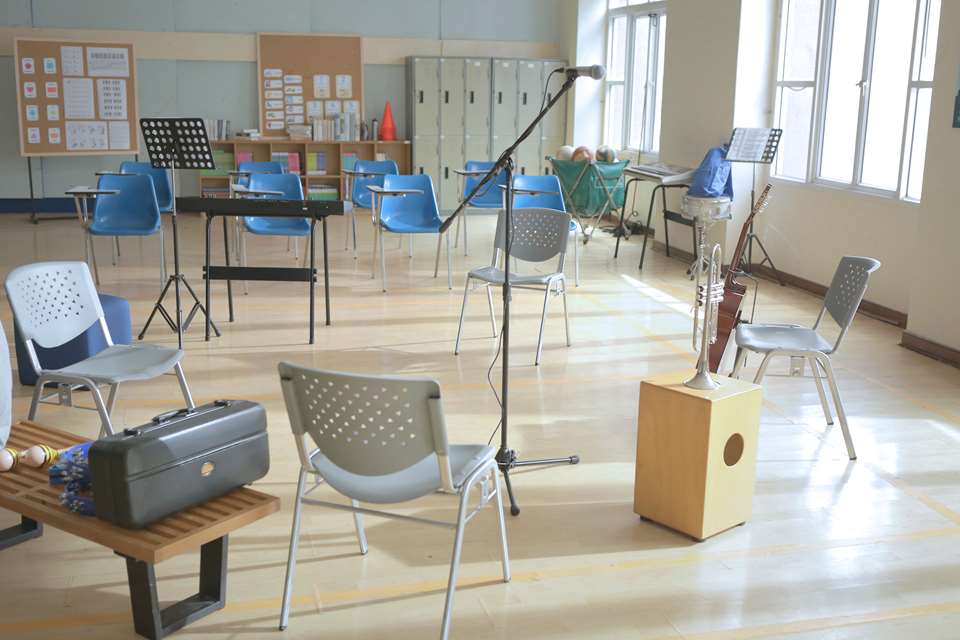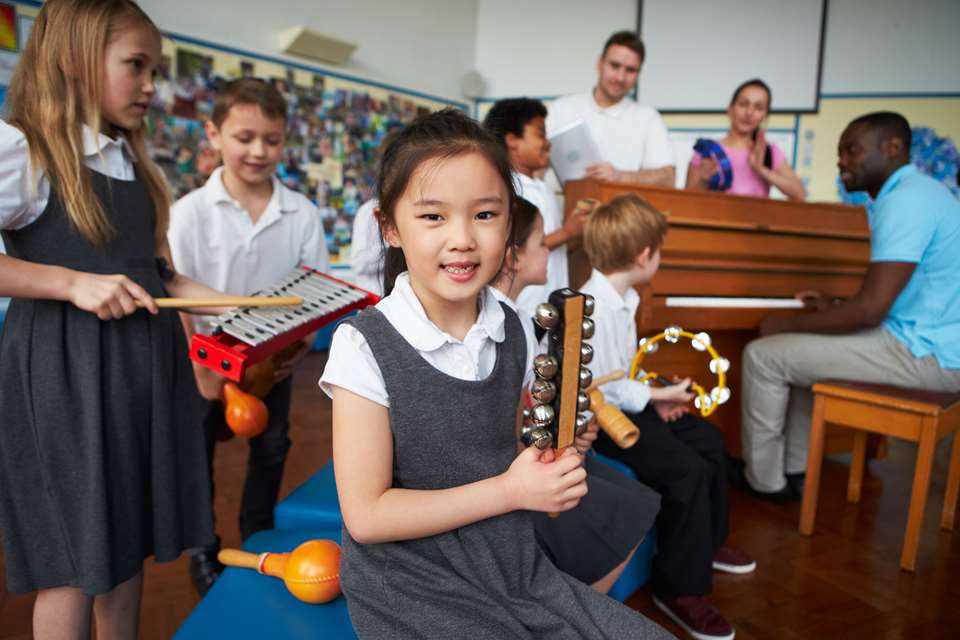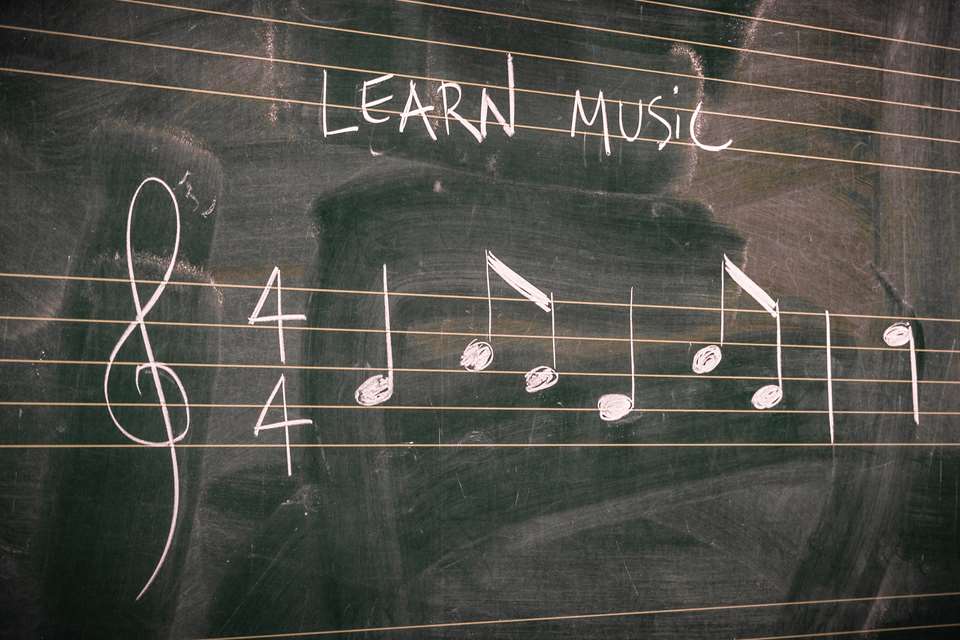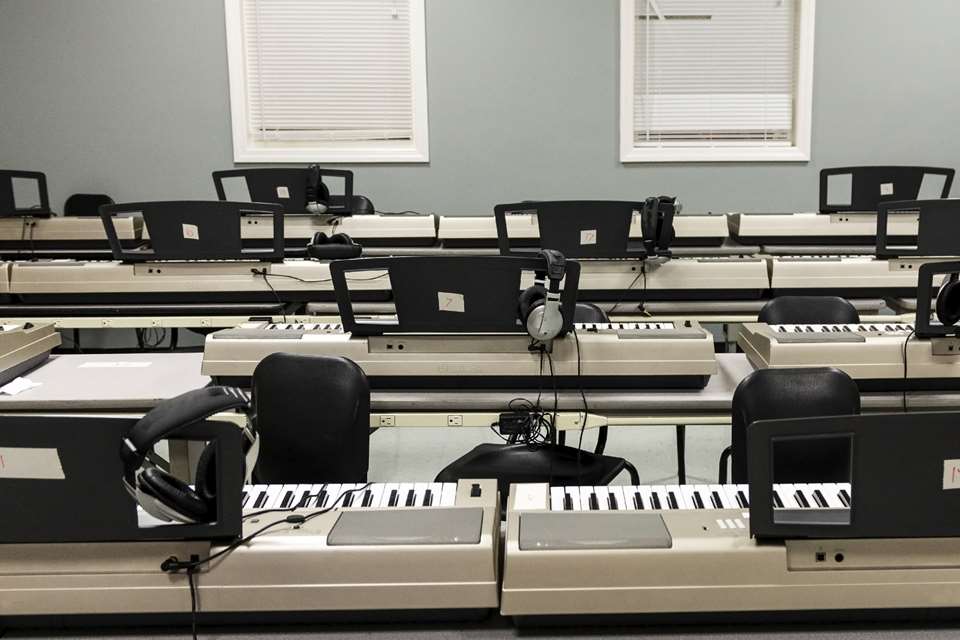Under inspection: Mark Phillips on Ofsted’s music research review
Harriet Clifford
Monday, July 12, 2021
Ofsted has published the first part of its subject review for music. MT’s editor Harriet Clifford speaks to senior HMI and national lead for music, Mark Phillips, to find out what the report really means for schools.
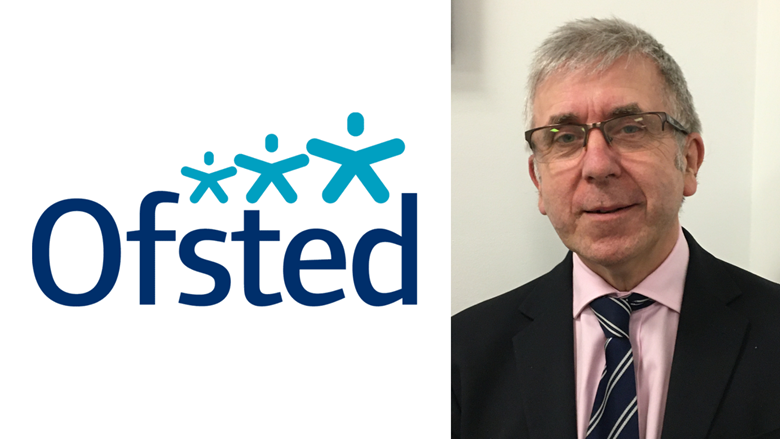
At the end of March, Ofsted (Office for Standards in Education, Children’s Services and Skills) announced that their latest subject reviews would be published in the summer term. The first part for music – a 71-page research review – is now available, with the second and final part, which will use evidence from deep dives (currently underway), due in 2022.
Mark Phillips, senior HMI and national lead for music, who I am speaking to over Zoom after having been given early access to the report, says: ‘It’s important that it’s seen in the context of the EIF (education inspection framework), because that’s what we do – we inspect schools. The purpose of [the research review] is to explain how the thinking and the rationale behind the EIF applies to music.’
In the report – authored simply by ‘Ofsted’, Phillips makes clear – the literature that informs Ofsted’s judgement of a ‘high-quality’ music education is laid out. With 190 references ranging from academic papers to tweets, it’s detailed and dense, but each of the core sections ends with several practical applications. Phillips is unwilling to discuss Ofsted’s process for selecting literature, but the principles and ‘filters’ used are set out online with the explanation: ‘We are not aiming to summarise the totality of research in education. We are using several criteria to act as filters so that we can select the most relevant research.’
Musical knowledge
The document is thoughtfully written and nuanced, but I am keen to know who is expected to read it from cover to cover. Phillips says, ‘It’s for headteachers, it’s for music teachers, it’s for music hubs. All the big players in music education – it’s really important and we’d like them to read it.' Drawing on the foundational theory around how students learn music, different types of knowledge (declarative, tacit, procedural), and three interlinked ‘pillars’ of progression (technical, constructive, expressive), the report contains some key messages for schools.
Phillips believes that, fundamentally, similar messages are in the previous two Ofsted music subject reports (2009 and 2012), notwithstanding the greater emphasis in the EIF on curriculum construction, which he welcomes. Within the first two minutes of our conversation (excluding the pleasantries and an anecdote about Phillips’ grandparents’ piano), he talks about pupils’ ‘knowledge of music’ before immediately correcting himself: ‘Actually, let’s not talk about knowledge of music, let’s talk about musical knowledge. Knowledge of music can be misinterpreted as just being facts about music, as being theories about music – it’s not. Musical knowledge is knowledge of the music itself.’

Equally early on – in both our conversation and the report – it is acknowledged that in music education, a lot of time is spent trying to justify music’s place. ‘We get that, we understand that in some schools it’s a real struggle,’ says Phillips. He references less time given to music, carousels, fortnightly rather than weekly lessons, and dwindling numbers of students taking GCSE and A Level Music over the last decade (35,400 students were entered for GCSE Music this summer compared to 54,000 in 2008). Much can be understood from the report’s starting point: ‘the assumption that a central purpose of good music education is for pupils to make more music, think more musically and consequently become more musical’.
Phillips says, however, that once the case has been made, ‘Just doing music isn’t enough – we’ve got an obligation to make sure it’s quality. We want headteachers to be asking questions about the quality of the music education in their schools. We want music teachers to step forward and really deliver a quality music curriculum, not just activities.’
Less but better
Throughout the report, there is a notable emphasis on the importance of teaching non-Western music within its cultural context – a message which Phillips says has ‘always been the case’ in Ofsted’s reporting. He offers further insight: ‘Sometimes we do other musical styles, but we “classicise” them. For example, if we’re teaching “African drumming” but we’re using Western notation to teach it, it is no longer “African drumming”. It’s really important that we see what different musical styles have in common, but also see the differences.’ He describes this as a ‘classic case’ of trying to do too much: ‘It ticks the national curriculum boxes – yes, we’ve done rhythm; yes, we’ve done music from other cultures; yes, we’ve done notation – but actually, trying to do too much can lead to confusion or misunderstanding.’
Expanding upon the report’s key message that musical understanding is found at the intersection of the three pillars of progression mentioned above, Phillips says: ‘It would be very simple to think that these are about performing, composing, and listening, but they’re not. They’re not the same.’ Each are outlined clearly with examples and practical applications, with the caveat that they are not siloes. ‘I think we need to focus on making sure that we rigorously teach all of those areas, but also give room for pupils to put them together and think, “I get this” – and that brings music alive, doesn’t it?’
What now?
Now that the document is available, the expectation from Ofsted is clear: ‘I would expect schools to read this review and ask themselves some questions about their curriculum: Is it well sequenced? Does it provide the knowledge that pupils need to progress in music over time, incrementally?’ He continues, ‘Most people look at the aims of the national curriculum and they’ll tick the boxes – yes, we do composing; yes, we do some singing; yes, we have whole class instrumental teaching in primary; yes, we listen to different kinds of music. Those are activities, and just doing those is not a well-sequenced curriculum.’

Our conversation is peppered with examples taken directly from the classroom, carefully selected to illustrate everything Phillips says, and the report is similar in this respect. On teaching incrementally, he uses the example of a secondary school teaching the blues in Year 7 and doing a project on rock & roll in Year 8. Both the 12-bar blues and rock & roll typically use chords I, IV and V, and Phillips says: ‘You can see historically how rock & roll evolved from blues, and we all get that, but how has pupils’ knowledge, understanding, use, and application increased from Year 7 to Year 8 if they’re still using chords I, IV and V? There can be progression in some respects, but in terms of harmony, how’s that moving on? Do schools think about that as well?’
To inform, not prescribe
When the model music curriculum was published by the Department for Education (DfE) in late March, Ofsted promptly issued a statement clarifying their expectations, which Phillips echoes now: ‘We welcomed it, but we will not go into a school and expect to see them using it, because, as with any scheme of work, the resource is only as good as the way it’s implemented and the impact it has. Simply adopting the MMC doesn’t tick a box. It doesn’t guarantee good provision.’ He adds, ‘It’s a really interesting and useful resource that gives lots of ideas, and we hope it’s useful to schools. But we wouldn’t say it’s the curriculum you must follow, and I don’t think the MMC says that either. It’s there to inform, not to prescribe.’
The elephant in the (Zoom) room, I feel, is the question of whether the ‘high-quality’ music education set out in the report is realistic, given current funding levels nationally. ‘That is a very interesting question,’ Phillips says after a considered pause. ‘We’re recovering from a pandemic – we’ve had a really tough 18 months, not just with Covid generally, but with music in schools. I think if we’re talking about recovery, my question is: What are we recovering to? Do we want to recover to where we were in February 2020, with carousels, with reducing numbers at GCSE, with whole class ensemble being taught for one term and very few children carrying on afterwards?’
He continues: ‘This is an opportunity we’ve got now. There has been funding for music education in hubs and in wider ops, but resources are diminishing – so are we making the best use of our resources? That’s the question we’ve got.’
Before I end the call, I think of my mum – a primary school music lead – anxiously sitting in the next room as I speak to Ofsted’s music bigwig. ‘What would you say to a music teacher who lives in fear of an Ofsted inspection?’ I ask. ‘Don’t,’ replies Phillips, without skipping a beat. ‘We’re not judging you; we don’t give grades for individual teachers, we don’t give grades for individual subjects – that’s really, really important.
'When we do a deep dive in any subject, we’re looking for systemic issues in the school as a whole. If you’re struggling because of lack of CPD and lack of curriculum support, then we’ll look at it, but we’ll take it back to school leadership.’ He pauses, then says, ‘We’d like to do more music deep dives. If we choose one, then it means that music is at the heart of your school inspection.’
Words of reassurance? Perhaps not entirely. One thing that is reassuring, though, is that Ofsted’s national lead for music speaks (and writes) passionately and sincerely about music’s integral place in any child’s education – and that, after all, once we clear a path through all the contention, the politics, and the academia, is what this is all about.
The report can be read in full here. We will also be examining the report further in our September issue.



